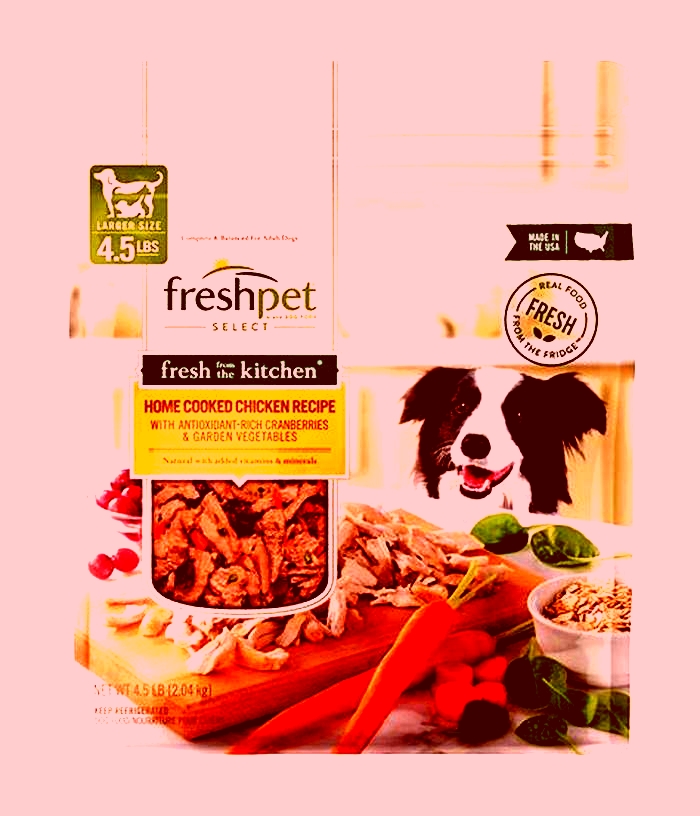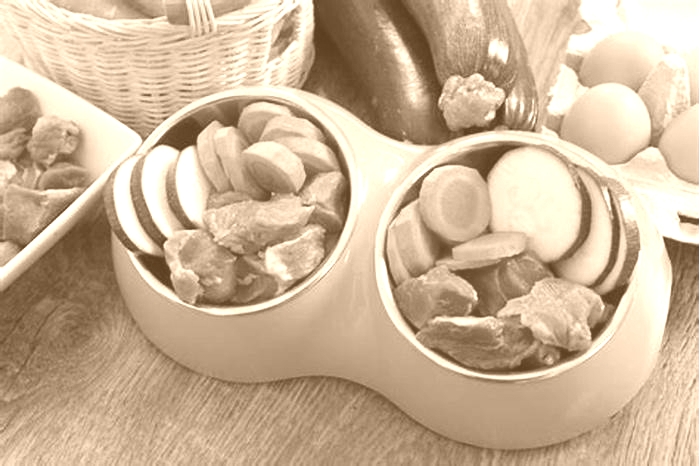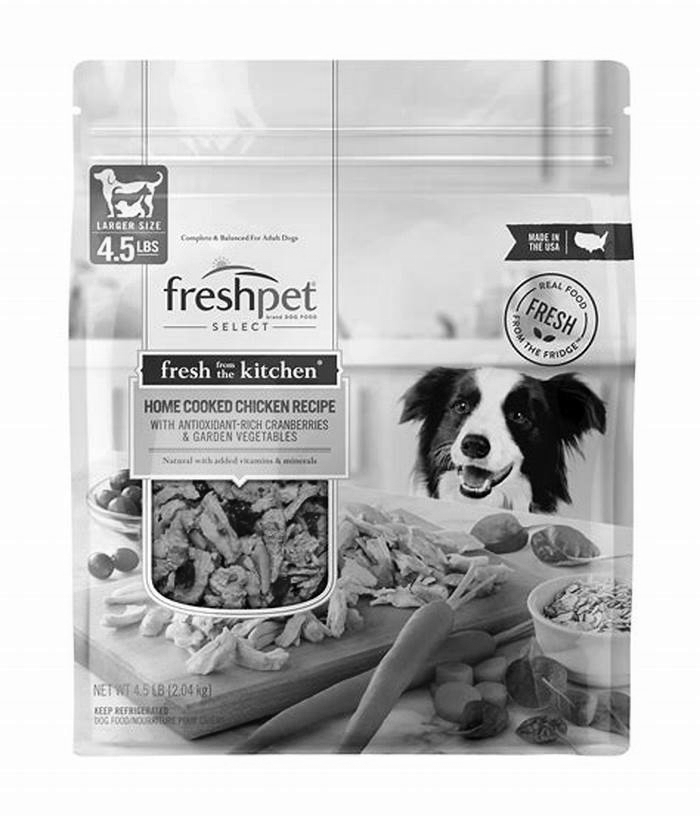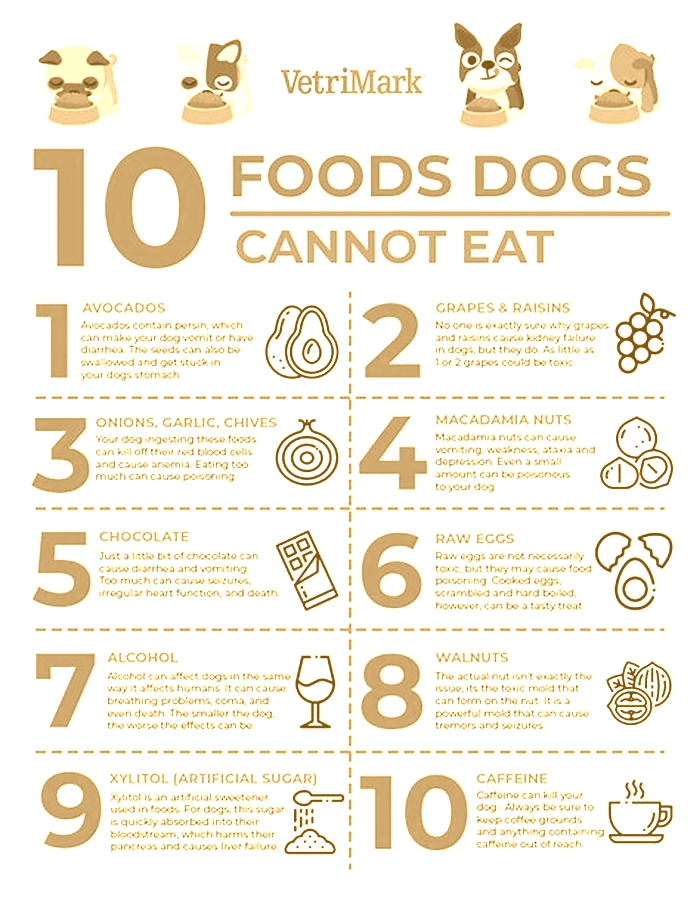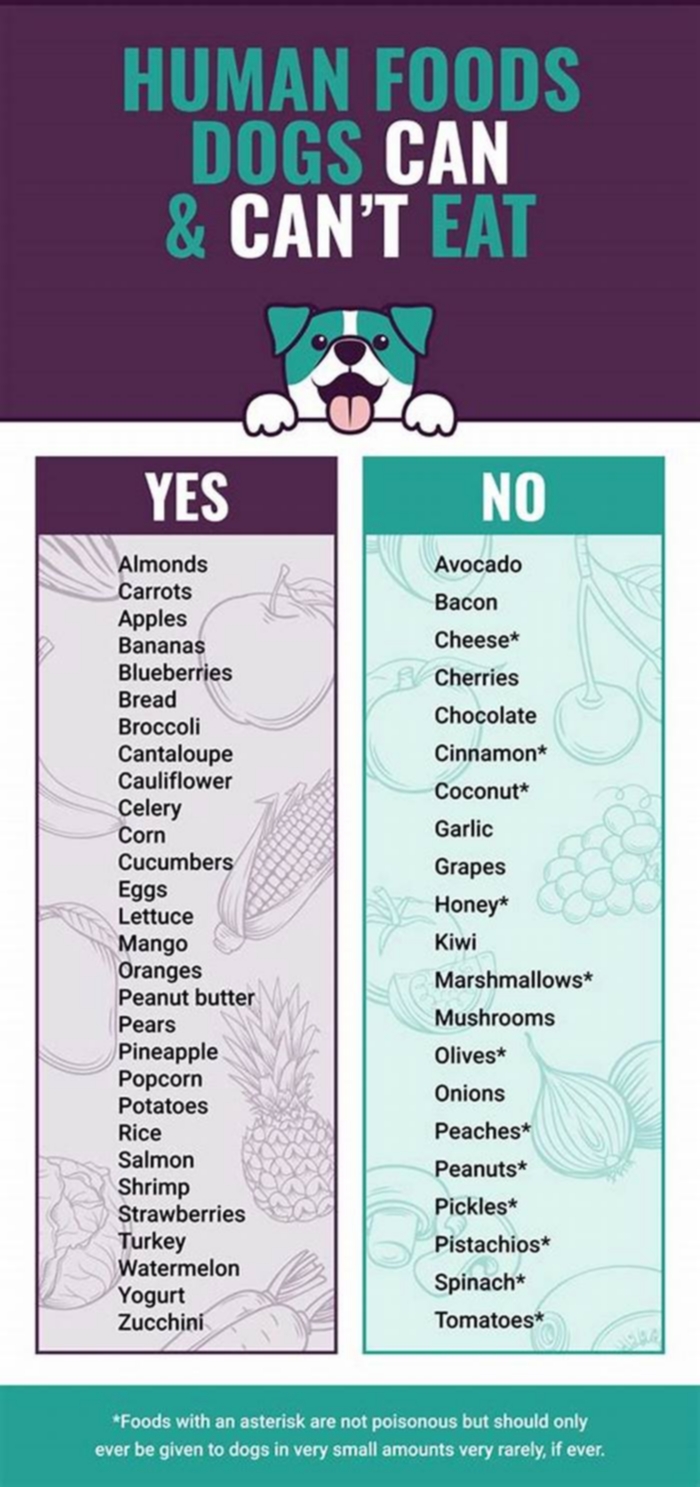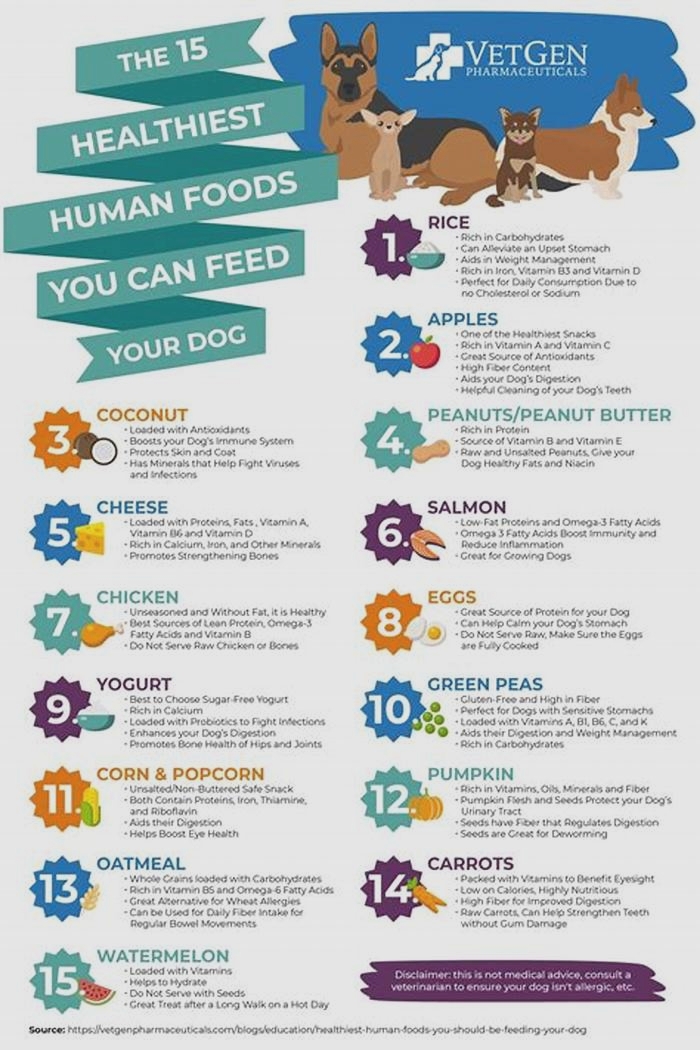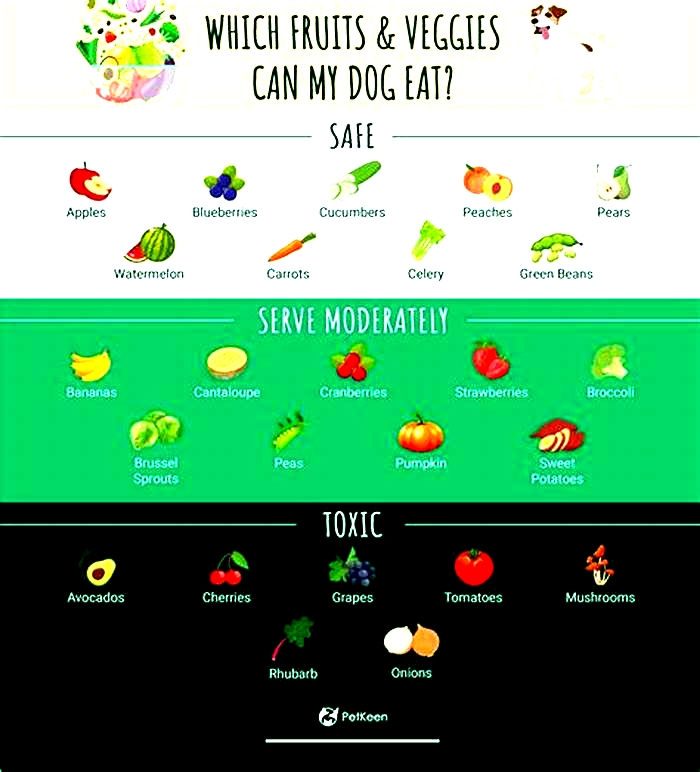healthy natural foods for dogs
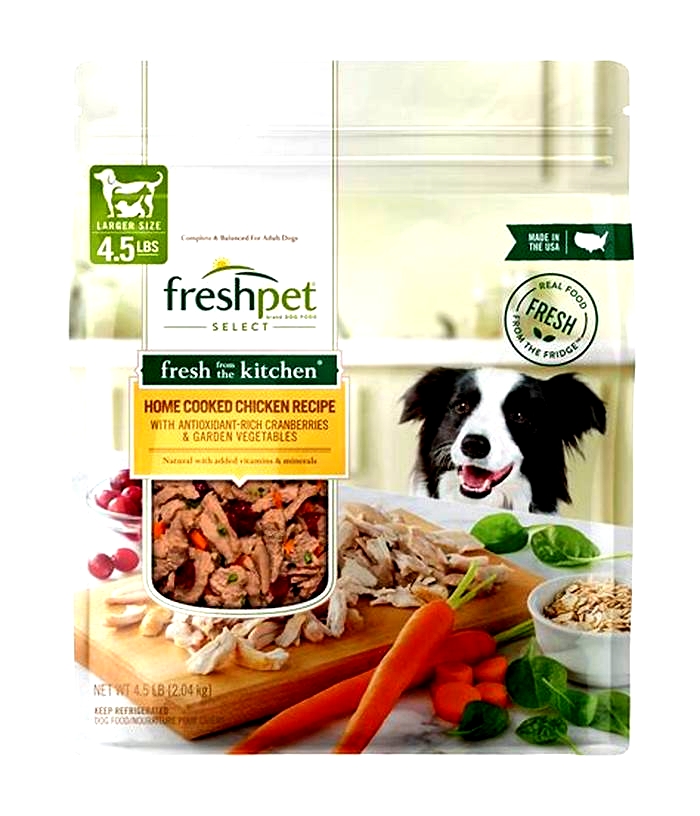
12 natural treats for dogs you can feed from your kitchen
Looking for some ideas on natural treats for dogs that are healthy, tasty, and most likely already in your cupboard or fridge? Then youve come to the right place!
Even though youre probably already spoiling your canine companion by serving them up the best dog food every day, sometimes its nice to be able to offer them some additional treats and snacks to add a bit of variety into their diet.
A lot of pet parents wonder what human foods dogs can eat, so weve compiled a handy list for you of 12 safe options that are also nutrient-dense and taste great - because a food thats nutritious but not delicious isnt worth eating in our book!
While there are a few items below that might not be staples in your kitchen, most are budget-friendly and all of them are readily available, so you wont have to hunt high and low to find them.
Although many popular dog treats lining the supermarket shelves can be good in a pinch and helpful when training, many of them are void of nutrients and act as empty calories.
However, you should keep in mind that many treats we consider as 'healthy' can actually contain hidden sugars for a dog and are best served only in moderation, as part of a balanced doggy diet.
1. Blueberries
They may be small but the humble blueberry packs a powerful nutritional punch that makes it a superfood for both humans and dogs. Loaded with antioxidants that will help fight free radicals and slow down the aging process in your pups body, blueberries are also great at supporting urinary tract health, reducing the risk of some cancers, and can help protect brain cells.
You can mix blueberries into your dogs regular meals, feed them on their own as a snack, and if you freeze them, they make a great cooling treat on hot summer days. Youll also find blueberries in the ingredient list of some of these 6 easy dog smoothies your pooch will love - all of which are a yummy way of sneaking some extra fruit and vegetables into your doggys daily diet.
2. Anchovies and sardines
Ok, we wont lie, these little guys arent going to leave your dogs breath smelling the sweetest but considering all the health benefits they offer, we reckon theyre worth it. Packed full of Omega-3 fatty acids, both anchovies and sardines can help keep your dogs coat looking glossy, their skin nourished, and their heart, brain, and joints in peak condition. Theyre also high in calcium, zinc, and vitamins B12, D, E, and K.
When selecting anchovies and sardines for your pup, go for ones that are packed in water rather than oil and make sure theres no added salt. You can serve them as a snack or as a topper over your dogs wet or dry food. Youll want to keep the portions controlled though as one anchovy has eight calories - stick to two to three per day for small dogs and no more than five for larger breeds. For sardines, smaller dogs can have up to half a tin a week and large breeds can have one tin.
3. Bone broth
The hip kid on the block these past few years, bone broth is equally as good for doggy consumption as it is for humans. A quick warning though, bone broth is a bit of a labor of love as it requires at least 24 hours of simmering animal bones and connective tissue to get the full nutritional benefits, but if you dont mind tending to it, your canine companions body will thank you big time.
High in protein and nutrient-dense, bone broth is full of anti-inflammatory amino acids and collagen to help support gut health. Its also great if your dog suffers from arthritis as it contains high amounts of glucosamine and chondroitin to help their joints and can slow the progression of this painful condition. We recommend you start with a few tablespoons and then gradually increase the dosage. Its great poured over wet or dry food to create a nice soup.
4. Carrots
A kitchen staple in most homes, carrots are loaded with beta-carotene which is great for eye, skin, and coat health, and for helping keep the immune system strong. Carrots are packed full of fiber too, excellent for keeping your pooch regular!
Raw carrots make a delicious and healthy snack and because theyre crunchy, they give your dogs jaw a good workout and help keep those teeth and gums in tip-top shape. Just make sure you cut raw carrots into appropriately sized pieces depending on whether you have a small or large dog. You also can steam or boil them and then puree and mix in with wet food for an extra dose of nutrition.
5. Chia seeds
Popular with wellness warriors the world over, the tiny but might chia seed is a nutritional powerhouse that has it all - protein, fiber, antioxidants, vitamins, minerals, and Omega-3 fatty acids. Getting to work on everything from skin and coat health to supporting the immune and digestive systems, chia seeds also help regulate blood sugar and as they move through the gut they can absorb 10-12 times their weight in water, expanding to leave your pup feeling fuller for longer.
If you want to mix chia seeds into your dogs dry food, youll want to soak them for around 90 minutes first, but with wet food, you can mix the dry seeds straight in as theres plenty of moisture for them to absorb. Chia seeds are full of fiber and too much of anything isnt a good thing, so stick to teaspoon for every 10 pounds of your dogs body weight - so a 20lb dog could have a teaspoon a day and a 40lb dog can have 1 teaspoon.
6. Eggs
Theres plenty to love about the incredible egg which comes rammed full of a host of goodness your dog will benefit from. High in protein, amino acids, fatty acids, and vitamins, eggs are solid all-round performers on the nutrition front. Theyre easy to digest too, so theyre ideal for dogs with delicate digestive systems or those recovering from illness.
You can serve eggs up to your pup in lots of different ways, including scrambled and hard-boiled. One medium-sized egg has about 75 calories, so youll want to factor this into your dogs daily calorie count.
7. Pumpkin
The creamy texture and mild flavor of pumpkin make it a hit with most dogs and like carrots, this vegetable is a great source of beta-carotene, large amounts of soluble fiber, and plenty of antioxidants and vitamins. It works wonders at relieving both diarrhea and constipation and will add a nice shine to your pups coat.
You can mix a tablespoon or two of cooked pumpkin in with your dogs food and the seeds make a great snack if you roast them in a little bit of olive oil - just keep the portion sizes under control with the seeds and stick to a few at a time. If you decide to buy canned pumpkin rather than roasting your own, steer clear of pumpkin pie filling, which has a ton of sugar and spices that arent good for your dog.
8. Cooked sweet potato
Like pumpkin, sweet potatoes tend to go down a treat with dogs and this cooked vegetable keeps well in the refrigerator, so you can roast up a nice big batch at the weekend and itll easily see you through the week. Sweet potatoes are an excellent source of dietary fiber to keep the digestive system healthy and because theyre a whole food, theyre less likely to trigger an allergic reaction, making them safe for most dogs. Just make sure you roast them without seasoning and serve them with the skin off.
9. Watermelon
Juicy and delicious, watermelon makes the perfect cooling summer snack. Overflowing with the antioxidant lycopene, which gives this fruit its pink hue and may help prevent cancer, watermelon is a great source of fluid to help flush the kidneys and keep the urinary tract healthy. Plus it has fiber for digestive health and is vitamin and mineral-rich.
Just be mindful that dogs cant eat the rind or seeds of watermelon, so youll want to remove all of these before you serve this tasty treat up to your pooch.
10. Green beans
Chopped, steamed, raw, or canned, it doesnt matter which way you serve up a green bean, as long as its been prepared naturally, its good for your dog. Theyre full of protein, iron, calcium, and vitamins B6, A, C, and K and theyre low in calories too so theyre great for overweight dogs as they can help them lose weight while still giving them a feeling of fullness.
Add to your dogs food for a tasty topper, give them as a standalone snack, or whip up a batch of your own DIY dehydrated dog treats using a mixture of beans and sweet potato - your pup will love the crispy texture.
11. Bananas
Creamy and filling, bananas are a great low-cholesterol sweet treat that have good amounts of potassium, vitamin C, and copper, which can aid digestion, heart health and provide a vital boost of energy.
You can serve sliced banana on its own or for a really indulgent occasional snack, spread with a little sugar-free peanut butter. Just remember that bananas are a calorie-dense fruit that also contains a fairly high amount of natural sugar, so moderation is key here.
12. Strawberries
A crowd-pleaser with humans and canines alike, the sweet and juicy strawberry makes for a delicious dessert-like treat. Theres plenty of fiber and lots of vitamin C to give your dogs immune system a good boost. Strawberries also act as a natural tooth whitener thanks to a compound called malic acid, so its a great choice if youre looking to polish up your pups pearlers.
Always give fresh strawberries and never canned fruit as these are usually soaked in syrup and sugar. Youll also want to start with small amounts just to make sure this fruit doesnt upset your dogs digestive system and as with all fruits, stick to small portions as strawberries contain natural sugars.
A List of 50 Super Healthy Foods
Eating a wide variety of nutritious foods, including fruit, vegetables, nuts, seeds, and lean protein can help support your overall health.
Many foods are both healthy and tasty. By filling your plate with fruits, vegetables, quality protein sources, and other whole foods, youll have meals that are colorful, versatile, and good for you.
Here are 50 healthy and delicious to include in your diet.
Fruits and berries are popular health foods.
They are sweet, nutritious, and easy to incorporate into your diet because they require little to no preparation.
1. Apples
Apples contain fiber, vitamin C, and numerous antioxidants. They are very filling and make the perfect snack if youre hungry between meals.
2. Avocados
Avocados are different from most other fruits because they contain lots of healthy fat. They are not only creamy and tasty but also high in fiber, potassium, and vitamin C. Swap mayonnaise for avocado as a salad dressing, or spread it on toast for breakfast.
3. Bananas
Bananas are a good source of potassium. Theyre also high in vitamin B6 and fiber and are convenient and portable.
4. Blueberries
Blueberries are both delicious and high in antioxidants.
5. Oranges
Oranges are well known for their vitamin C content. Whats more, theyre high in fiber and antioxidants.
6. Strawberries
Strawberries are highly nutritious and low in both carbs and calories.
They provide vitamin C, fiber, and manganese and make a delicious dessert.
Other healthy fruits
Other healthy fruits and berries include cherries, grapes, grapefruit, kiwi, lemons, mangoes, melons, olives, peaches, pears, pineapples, plums, and raspberries.
Eggs are highly nutritious.
Once demonized for being high in cholesterol,
Lean, unprocessed meats can be included in a healthy diet.
8. Lean beef
Lean beef is an excellent source of protein if you consume it in moderation. It also provides highly bioavailable iron.
9. Chicken breasts
Chicken breast is low in fat and calories but high in protein. Its a great source of many nutrients.
10. Lamb and mutton
Sheep are usually grass-fed, and their meat tends to be
Despite being high in unsaturated fat and calories, nuts and seeds
They also require almost no preparation, so theyre easy to add to your routine. They can also add texture to salads and other dishes.
However, they are not suitable for people with a nut allergy.
11. Almonds
Almonds are a popular nut that contain with vitamin E, antioxidants, magnesium, and fiber. A
12. Chia seeds
Chia seeds are a nutrient-dense addition to the diet. A single ounce (28 grams) provides 11 grams of fiber and significant amounts of magnesium, manganese, calcium, and various other nutrients.
13. Coconuts
Coconuts provide fiber and fatty acids called medium-chain triglycerides (MCTs).
14. Macadamia nuts
Macadamia nuts are tasty and higher in monounsaturated fats and lower in omega-6 fatty acids than most other nuts.
15. Walnuts
Walnuts are highly nutritious and rich in fiber and various vitamins and minerals. Pair them with feta cheese to dress a salad.
16. Brazil nuts
Brazil nuts are nutrient-rich and have a smooth, buttery texture. The nutrients they contain support thyroid function, and they are a good source of the mineral selenium.
Calorie for calorie, vegetables are among the most concentrated sources of nutrients. Including a variety of vegetables in your diet will ensure you get a wide range of nutrients.
17. Asparagus
Asparagus is a popular vegetable that is low in both carbs and calories and rich in vitamin K.
18. Bell peppers
Bell peppers come in several colors, including red, yellow, and green. Theyre crunchy and sweet and are a great source of antioxidants and vitamin C.
19. Broccoli
Broccoli is a cruciferous vegetable that tastes great both raw and cooked. Its an excellent source of fiber and vitamins C and K and contains a decent amount of protein compared with other vegetables.
20. Carrots
Carrots are a popular root vegetable. Theyre sweet, crunchy, and loaded with nutrients such as fiber and vitamin K. Theyre also high in carotene antioxidants, which have numerous benefits.
Put a few carrots stick in your lunch box or use them for eating guacamole and other dips.
21. Cauliflower
Cauliflower is a very versatile cruciferous vegetable. You can add it to curries, roast it with olive oil, or use it raw in salads or for dipping.
22. Cucumber
Cucumbers make a refreshing snack. They are low in both carbs and calories, consisting mostly of water. They also contain small amounts of vitamin K and other nutrients.
23. Garlic
Garlic is a healthy and tasty addition to salads and cooked savory dishes. It
24. Kale
Kale is high in fiber, vitamins C and K, and other nutrients. It adds a satisfying crunch to salads and other dishes. You can also add it to stir fries or bake in the oven to make crunchy kale chips.
25. Onions
Onions have a strong flavor and feature in many recipes. They contain a number of bioactive compounds believed to have health benefits.
26. Tomatoes
Tomatoes are usually categorized as a vegetable, although they are technically a fruit. They are tasty and provide nutrients such as potassium and vitamin C. For a bit of fun and extra flavor, try growing tomatoes on your windowsill.
More healthy vegetables
Other vegetables worth mentioning are artichokes, Brussels sprouts, cabbage, celery, eggplant, leeks, lettuce, mushrooms, radishes, squash, Swiss chard, collard greens, turnips, and zucchini.
Fish and other seafood can be healthy and nutritious. Theyre rich in omega-3 fatty acids and iodine.
Research
27. Salmon
Salmon is a type of oily fish that is tasty and high in nutrients, including protein and omega-3 fatty acids. It also contains some vitamin D.
28. Sardines
Sardines are small, oily, and highly nutritious fish. They provide many nutrients, including calcium and vitamin D.
29. Shellfish
Shellfish are nutrient dense and make a tasty light meal. Edible shellfish include clams, mollusks, and oysters. Be sure to get them from a reputable source to ensure they are fresh and toxin-free.
30. Shrimp
Shrimp is a type of crustacean related to crabs and lobsters. It tends to be low in fat and calories but high in protein. It also provides selenium and vitamin B12.
31. Trout
Trout is another type of delicious freshwater fish, similar to salmon.
32. Tuna
Tuna tends to be low in fat and calories and high in protein. Its perfect for people who need to add more protein to their diets but keep calories low.
Be sure to buy low mercury varieties that are responsibly sourced.
Whole grains play an important role in your diet because they are healthy carbs and provide a variety of micronutrients, fiber and, fuel for your body.
They may also help with weight management.
33. Brown rice
Rice is a staple food for much of the worlds population. Brown rice is more nutritious than white rice, with decent amounts of fiber, vitamin B1, and magnesium.
34. Oats
Oats provide nutrients and powerful fibers called beta glucans. Glucans provide numerous benefits, including helping lower cholesterol and feed beneficial bacteria in the gut.
35. Quinoa
Quinoa is a tasty grain thats high in nutrients such as fiber and magnesium. It is also an excellent source of plant-based protein.
Whole grain breads can be high in fiber and other nutrients, and are a better choice than highly processed white bread.
When buying bread, compare product labels and look for those with the most dietary fiber and the least added sugar.
If you make your own bread, youll know exactly what goes into it. A bread making machine can help if youre not sure about baking.
36. Ezekiel bread
Ezekiel bread is made from organic sprouted whole grains and legumes.
37. Homemade low-carb and gluten-free breads
If youre looking for low-carb or gluten-free breads, you might want to consider making your own. Heres a list of 15 recipes for gluten-free, low carb breads.
Legumes are a great plant-based source of protein, iron, and fiber.
Legumes can sometimes interfere with digestion and nutrient absorption, but soaking and properly preparing them can reduce this risk.
38. Green beans
Green beans, also called string beans, are an unripe variety of the common bean. Use them whole as a side dish or add them cold to salads.
39. Kidney beans
Kidney beans contain fiber and various vitamins and minerals. Make sure to cook them properly, because theyre toxic when raw.
40. Lentils
Lentils are another popular legume. Theyre high in fiber and a good source of plant-based protein.
41. Peanuts
Peanuts are, in fact, legumes, not true nuts. They are tasty and high in nutrients and antioxidants. One
However, if youre monitoring your calorie intake, you may want to be mindful of your consumption of peanut butter, which is very high in calories and easy to eat in large amounts.
For those who can tolerate them, dairy products are a healthy source of various important nutrients.
42. Cheese
A single slice of cheese may offer about the same amount of nutrients as an entire cup (240 ml) of milk. Its also a tasty addition to many dishes and can replace meat as a protein food. However, it can be high in fat.
There are many types of cheese, with different flavors and textures. Opt for less processed varieties of cheese.
43. Dairy milk
Dairy milk contains vitamins, minerals, protein, and calcium.
A
44. Yogurt
Yogurt is made from milk that is fermented through the addition of live bacteria. It has many of the same health effects as milk, but yogurt with live cultures has the added benefit of friendly probiotic bacteria.
Dietary patterns that include unsaturated fats and oils are considered very healthy.
45. Extra-virgin olive oil
Extra-virgin olive oil is one of the healthiest vegetable oils. It contains heart-healthy monounsaturated fats and is high in antioxidants that have powerful health benefits.
46. Coconut oil
Coconut oil is a saturated fat, but it contains MCTs and may have similar health effects to olive oil.
However, coconut oil has been
Tubers are the storage organs of some plants. As foods, they are called root vegetables.
47. Potatoes
Potatoes provide potassium and contain a little of almost every nutrient you need, including vitamin C. With their jackets, they are also a good source of fiber.
Potatoes
48. Sweet potatoes
Sweet potatoes are rich in antioxidants, beta carotene, vitamin A, and other essential nutrients. Eat them baked, mashed, or added to other dishes.
Apple cider vinegar may help regulate postmeal blood sugar levels when consumed with a meal, though more evidence is needed on its effectiveness.
Its great to use as a salad dressing or to add flavor to meals.
Dark chocolate contains antioxidants known as flavonoids that
The
What are the 20 most healthy foods?
Research from 2021 developed a scoring system of food based on 54 attributes covering these nine domains: nutrient ratios, vitamins, minerals, food ingredients, additives, processing, specific lipids, fiber and protein, and phytochemicals. Based on the mean values of this scoring system, the healthiest food categories are:
- legumes
- vegetables
- fruit
- fish and seafood
- sauce condiment
- dairy
- mixed dishes
- beverages
- grains
- meat, poultry, eggs
- fats and oils
- savory snacks and sweet desserts
Of course, whether a particular food is healthier than another ultimately depends on the exact food and any specific ingredients it may contain. Its a good idea to consult a dietician to determine exactly what foods are best for you.
What foods are healthy to eat every day?
According to the
What is the #1 healthiest food?
No one food can provide all the nutrients you need to consume in one day, so eating a balanced diet is the best way to get what you need to stay healthy. In addition, the state of your overall health and any conditions you might have may limit what foods you can consume, even if they are very nutritious. Speak to your doctor to determine the best nutrition plan for you.
That said, research looking at the nutrient density of various food groups found that the following foods contain the most nutrients:
- organ meats
- small fish
- dark green leafy vegetables
- bivalves such as oysters and clams
- crustaceans such as lobster and shrimp
- goat meat
- beef
- eggs
- milk
- canned fish with bones
- mutton
- lamb
Whether you want to overhaul your diet or simply change up your meals, its easy to add a number of these foods to your routine.
Many of the foods above make a great snack while also providing essential nutrients. Some may even aid weight loss.

